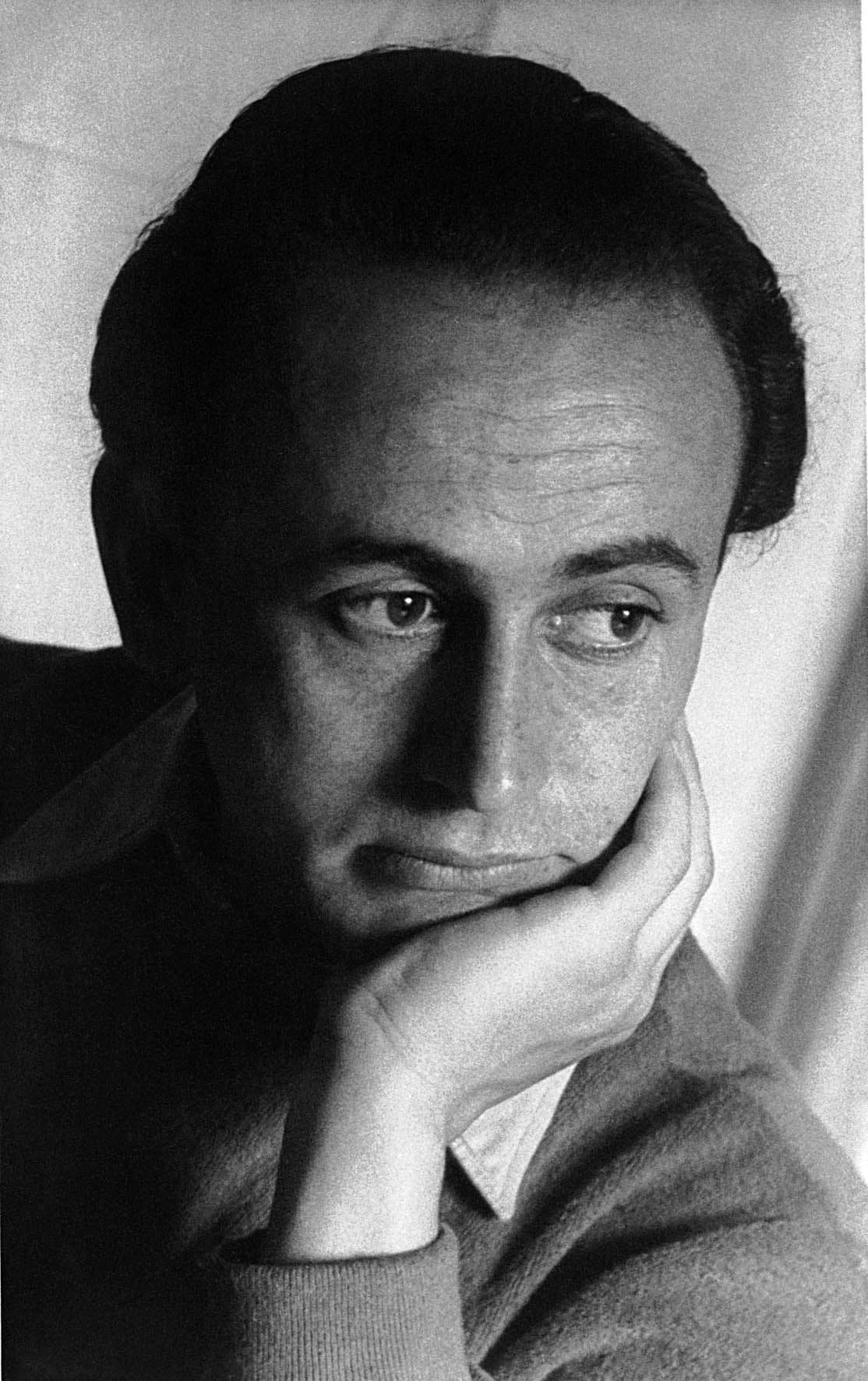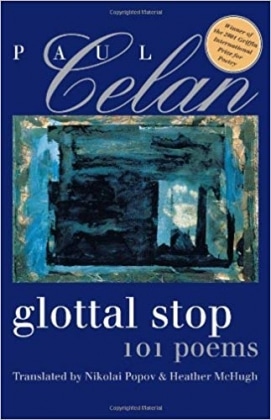
Paul Celan (1920-1970) is widely regarded as Europe’s greatest postwar poet. Born in Romania, Celan was an eastern European Holocaust survivor, who settled in Paris after the war where he remained, until his death. Celan, who spoke at least six languages, worked as a translator of French, Russian and English literature, but wrote his poetry solely in German. Among his major poems is Death Fugue that evokes the horrors of the Holocaust.

Glottal Stop: 101 Poems by Paul Celan 2001 International Winner
Judges’ Citation
Paul Celan is arguably the most important European poet of the twentieth century, but much of his work has seemed too hermetic, linguistically complex, and bound to his struggle with the German language in the aftermath of the Shoah to be translatable.
Paul Celan is arguably the most important European poet of the twentieth century, but much of his work has seemed too hermetic, linguistically complex, and bound to his struggle with the German language in the aftermath of the Shoah to be translatable. In Glottal Stop, however, Nikolai Popov and Heather McHugh have achieved the seemingly impossible: more than translating Celan into English, they have found a way to translate English into Celan.
Selected poems
by Paul Celan
O little root of a dream
you hold me here
undermined by blood,
no longer visible to anyone,
property of death.
Curve a face
that there may be speech, of earth,
of ardor, of
things with eyes, even
here, where you read me blind,
even
here,
where you
refute me,
to the letter.
Copyright © 2000, Nikolai Popov and Heather McHugh, translated from the German written by Paul Celan, Glottal Stop: 101 Poems by Paul Celan, Wesleyan University Press
O Little Root of a Dream
the German written by Paul Celan
The sight of the songbirds at dusk,
through a ring of
ungraphed space,
made me promise myself weapons.
The sight of weapons, hands;
the sight of hands, the line
long since described by a flat, sharp
rock,
– you, wave,
carried it here, sharpened it,
you, Un-
losable One, gave yourself to it,
you, beach sand, are the taker,
partaker,
you, shore-grass, drift
your share –
the line, the line
we swim through, twice each
millennium, tied up
in each other,
and not even the sea,
sublime unfathomable sea
that runs alive through us,
can believe
all the singing in our fingers.
Copyright © 2000 Paul Celan (translated by Nikolai Popov and Heather McHugh)
The sight of the songbirds at dusk
the German written by Paul Celan
Voices, scored into
the waters’ green.
When the kingfisher dives,
the split second whirs:
What stood by you
appears on every shore
mown down
into another image.
* * *
Voices from the nettles:
Come to us on your hands.
All you can read, alone
with a lamp, is your palm.
* * *
Voices, night-knotted, ropes
on which you hang your bell.
Dome yourself over, world:
when death’s shell washes up on shore
a bell will want to ring.
* * *
Voices that make your heart
recoil into your mother’s.
Voices from the hanging tree
where old growth and young growth
exchange rings.
* * *
Voices, guttural, amid the debris,
where even infinity shovels,
runnels of
(cardio-) slime.
Launch here the boats I manned,
my son.
Amidships, when an evil wind takes charge,
the clamps and brackets close.
Jacob’s voice:
The tears.
Tears in the eye of my brother.
One clung. It grew.
We live in there.
Now, breathe –
so it may
fall.
* * *
Voices inside the ark:
Only
the mouths
were saved. Hear us,
o sinking things.
* * *
No
voice –
late noise, stranger to the hour,
gift to your thoughts, born of
wakefulness here in the final
account: a
carpel, large as an eye, and deeply
scored: bleeds
sap, and won’t
heal over.
Copyright © 2000 Paul Celan (translated by Nikolai Popov and Heather McHugh)
Voices, scored into
the German written by Paul Celan